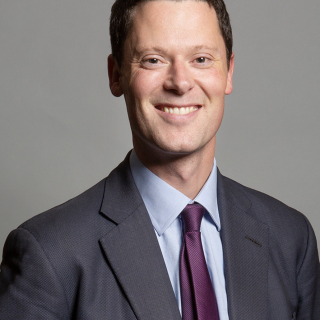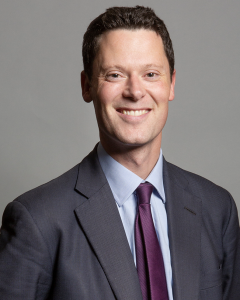Katherine Reece Thomas, Programme Director of the LLM at the City Law School, has organised a series of external speaker lectures and we plan to feature reviews of them here on Lawbore. Tom Spencer, current LLB3 student attended this one on 23rd February featuring City alumni, Alex Chalk.
The Solicitor-General, a former Prisons Secretary, Justice select committee member, chair of APPGs on legal aid, barrister, and most importantly City GDL alumni, Alex Chalk QC, MP has lived an accomplished career. It was therefore exciting to hear Alex had agreed to speak to City students about the need for young lawyers ‘to help out’ in society.
A risk when hearing politicians speak is that they can occasionally be overly formal, failing to show personality or relate themselves to the audience, but that was not the case with Alex. He was honest about his views, at least far as a Law Officer of the Crown can be, and was helpful in answering the questions from both Associate Professor Katherine Reece-Thomas, who was MCing the event, and students from City. Indeed, what I appreciated most is how he seemed to want to breeze through his own biography and experiences to focus on talking to students, answering their questions, and helping the listeners.
Where Alex seemed most concerned is access to justice. It is obvious to anyone who’s seen the state of our justice system that it is struggling, and it’s no wonder this has happened; indeed, despite recent real increases in funding, the justice system will still have seen a 12.2% cut in spending by 2025. You could tell throughout, even if he was unable to state it explicitly, that he was concerned about this. However, as he hinted, the political and fiscal constraints have made it difficult for him to have a real impact on reversing this trend.
Even so, Alex was honest throughout about how young lawyers can help to mitigate the harm in acting with social responsibility. Whilst being clear that a lawyers first responsibility is to become the best lawyer they can be, he also emphasised for those in a position to take on pro-bono work they can see many benefits from it. One area he had found interesting himself was volunteering with the Free Representation Unit before he practised (something many City students do). This gave him practical experience of working with clients and advocacy skills. Moreover, this does not have to stop when one does start to practice; Alex quoted examples of major commercial firms like Hogan Lovells who have done, what he felt to be, excellent work throughout the pandemic.
Some of the most interesting segments of the talk came from unexpected questions from the audience, and I think this is where we got to see more into Alex’s personality. For example, one fear I have seen from many prospective lawyers, and have also considered myself, is becoming emotionally attached in a case and losing. Whilst no one likes losing, it is that fear of having failed your client that puts many off the law. Some people could pretend it’s not something they have gone through, but for Alex in his experiences as a barrister it was. However, by describing how to get through it and to continue serving justice Alex also comforted the audience without deluding the questioner that it is always a comfortable job where one can easily dehumanise themselves and ignore the importance of their advocacy.
Other areas were unlikely to be immediately helpful to students, but were equally fascinating. I particularly enjoyed his explanation of when he would consider reviewing a sentence for being unduly lenient. It’s an area of law we see in the news and in textbooks often, but the opportunity to hear one of the few people tasked with actually doing that job on their thought process when reviewing a case was a great opportunity. It was also good for those concerned about excessive discretion and politicisation in the decisions of what cases to review to hear that he took a simple approach of looking at the sentencing guidelines and questioning whether they were correctly applied.
This was obvious when he brought up the example of the recent Ben John case, a white nationalist terrorist whose sentence was to read classical literature. This was clearly an improper application of the guidelines worthy of review, and so he made this case in the Court of Appeal, and was able to ensure John would serve time in prison for his offences.
Anyone expecting a lecture on how young lawyers can serve societal interests did not get what they were expecting. This was more of a conversation between an accomplished politician and barrister and young lawyers about his experiences and trying to use them to both inform and help the audience which consisted mostly of young people with ambitions of becoming lawyers. Thus, it took a path I did not expect, but it remained a rewarding one. Any City students wanting to see more than my edited highlights can find the full lecture recording online.
Tom Spencer is an LLB3 student and a member of the Lawbore journalist team. He is interested in pursuing a career as a barrister and regularly writes for a number of platforms writing on a range of issues from constitutional affairs, bar applications and economics.





